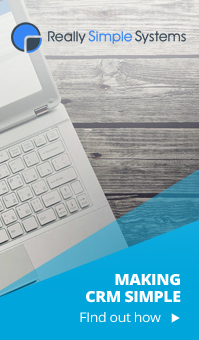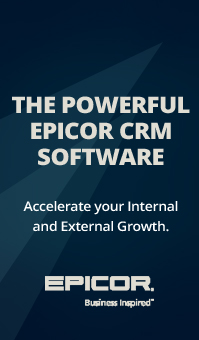
Do you need a CRM System?
The buying, installing and running of a CRM system
is an important move in a company’s development. It signals to staff and
customers that you are moving forward and have plans.
With this comes the added responsibility of
ensuring that the system helps to add-value to your business.
Studies show that on average, companies using CRM software grow their businesses at a rate 2-3 times
faster than those that do not. But you need to ensure that the system
is in place for the right reasons – this guide aims to help in clarifying those
reasons.
What is your high-level need?
Business is often about problems and the reason
you visited our site is that:
- You have a problem
- You hope that CRM will fix the problem, but you are not sure
- You need to understand what CRM can do and if it can fix the problem
In our discussions with customers, vendors and
analysts CRM systems are usually put in for two reasons:
- Opportunity
- Productivity
In some cases the Opportunity cannot be addressed with current systems and processes without hiring lots of new staff, so Productivity is also a driver.
Opportunity
CRM can help you to grow your business, to be more
efficient in winning and managing customers.
A CRM can help companies to better manage growth.
This may mean moving from spreadsheets and databases to running the business in
a CRM system. The information in the CRM is ‘up to date’; there is no “which
version of the forecast are we looking at” discussion. This is often called “the single source of truth”.
There are different sets of opportunities for
different departments in the business.
In B2B environments a common set of functions for
sales is called Sales Force Automation that can include:
- Account Management
- Contact Management
- Territory Management
- Identify target Companies
- Develop plans to generate business Leads
- Assign the best sales staff to manage Opportunities
- Optimise pricing offers to close Sales
- Manage Customers for long-term relationships
In many businesses, marketing is often an
after-thought – something that is done with the limited energy left after all
other tasks have been done. Marketing is often thought of as advertising and
brochures, but with a CRM system marketing should have a major role in your
business. A CRM system will allow your sales and marketing team to work
together, with marketing ‘preparing the ground’ for your sales people to have
discussions with prospects, customers and partners. They will have an integral
part to play in the five-step sales process above.
Examples can include marketing sending an email to
customers on the introduction of a new product. They can then identify and
measure which customers went to your website as a result of the email – these
can be prioritised for follow-up by sales.
CRM systems also have the ability to record
conversations with contacts and accounts. This can be extended to call-centre
functionality. All telephone calls outbound or in-bound can be recorded. They
can record the discussion with the customer, address and answer the question or
gather more information and raise follow-up flags.
In summary the CRM software consolidates all
customer information and processes into one, holistic view of each customer.
This enables customer-facing employees in sales, marketing and customer service
to make quick, informed decisions on everything from cross-selling and
up-selling opportunities to target marketing strategies and effective problem
resolution.
Productivity?
Sometimes a company has grown quickly and they
realise that future growth is hampered by the ways they currently do things. A
common issue is where a company may have many spreadsheets that have been
developed over many years. Spreadsheets are good, but not always good for
running a business. Typical issues include
- Version
control- “which one are you using?”
- Location – “Where is that spreadsheet?”
- Distribution – “Can you send me that one?”
- Access – “I’m out of the office without my PC”
- Databases – for customer or prospect lists
- Word
Documents – for business plans, marketing plans, account
plans
- Contact
Files – if held in a sales reps Outlook folder then
other staff may not have the details to call, email an account or contact
A CRM system can address all these issues:
- Version
control – there is only one version and can be easily kept
up to date by staff.
- Location
–
as there is only one version and it’s all in the CRM system, then the location
is a constant.
- Distribution
–
this requirement goes away as you can interrogate the system in real-time.
- Access
–
modern Smartphone’s can access CRM.
- Contact
List – all contacts should be kept centrally in the CRM
and not on personal PC’s.
Reasons not to use CRM
However, a CRM may not be appropriate for you and
your business. It may not be appropriate if:
- You don't have clear ideas on what benefits you want from a CRM
- Your business is in a major re-organisation or transition - so it's unclear what the 'end-state' will be
- You have bigger issues to address in the business at the present time e.g. manufacturing quality, distribution systems
- Your aspirations for growth can be managed by improving current ways of working, rather than installing a CRM
- At present, you don't have the time or energy to apply to the implementing a system
Summary
A CRM system provides you opportunities to improve
your business. If the new business and productivity improvements are sufficient
then you should invest in a CRM.
However, you do need time and focus to do it
properly – done badly it can be a burden with limited benefits.
Date posted: 2014-12-15 | posted by: miked
Tweet



